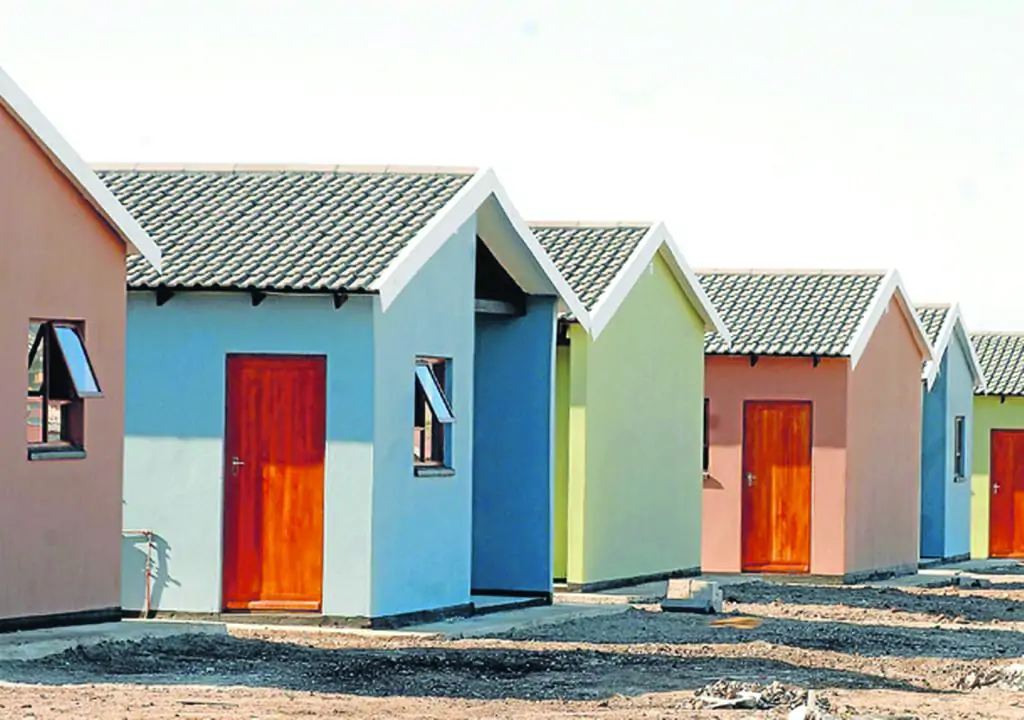
KwaZulu-Natal, South Africa – Over the years, KwaZulu-Natal has emerged as a beacon of progress in the delivery of housing units and ensuring food security for its citizens. Premier Nomusa Dube-Ncube, in her recent State of the Province Address, underscored the remarkable achievements the province has made since the dawn of democracy in 1994.
With a total of 690,000 housing units built, KwaZulu-Natal has transformed the lives of more than 2.8 million citizens, providing them with decent housing and opportunities for a better future. Premier Dube-Ncube highlighted that this figure doesn’t include the 130,000 sites made available over the same period, indicating a concerted effort by the government to address housing needs comprehensively.
The province has also prioritized the provision of fully subsidized houses for destitute families, with 52,974 such houses already constructed. Notably, 36,400 housing units have replaced mud houses, a significant step towards improving living conditions and eradicating substandard housing.
Moreover, KwaZulu-Natal has made strides in addressing the housing needs of military veterans, with dedicated projects aimed at providing them with suitable accommodation. Additionally, 16,973 serviced sites have been made available for individuals who can afford to construct their own homes, fostering a sense of ownership and empowerment within communities.
Social housing initiatives have also been a focus, with 19 projects delivering 2,532 rented units for those who can afford to pay rent within social housing schemes. Community residential units (CRUs) have further contributed to housing accessibility, with 1,116 rental units already established.
The declaration of 22 priority development areas underscores the government’s commitment to targeted development, ensuring that resources are allocated efficiently to areas in need. These areas include key locations such as KwaDukuza Town/Hyde Park-Nonoti Area, Empangeni, Richards Bay, and others, where infrastructure and housing development are being prioritized.
In addressing the challenges posed by informal settlements and supporting farm workers, the government has acquired vast land parcels across various regions. Notable acquisitions include hectares of land in Emadlangeni, Newcastle, Abaqulusi, and lnkosi Langalibalele, signaling a proactive approach to land management and urban development.
The closure of Transitional Emergency Accommodations (TEAs) in most municipalities reflects the government’s commitment to providing sustainable housing solutions. Efforts to integrate affected communities into permanent housing arrangements demonstrate a holistic approach to addressing housing challenges.
Furthermore, Premier Dube-Ncube highlighted the successful closure of mass care centers, symbolizing progress in disaster response and management. Efforts to relocate flood victims to permanent homes showcase the government’s dedication to ensuring the safety and well-being of its citizens.
One of the flagship projects, the Vulindlela Rural Housing Project, has not only provided much-needed housing but has also stimulated job creation, with over 1,832 jobs created. This initiative underscores the government’s focus on socio-economic development alongside housing provision.
In addition to housing, the province has made significant strides in addressing food security concerns. Premier Dube-Ncube noted a substantial decrease in households vulnerable to hunger, dropping from 50% in 2004 to 12% in 2022. This achievement is attributed to various initiatives by the Department of Agriculture and Rural Development, including support for smallholder producers and food production programs.
The implementation of the Multi-Planting Season program, which saw 150,000 hectares planted for food production, has been instrumental in boosting agricultural output. Similarly, interventions such as the One Home One Garden initiative have supported food insecure households, demonstrating a proactive approach to addressing food scarcity.
Looking ahead, Premier Dube-Ncube has emphasized the importance of continued collaboration and innovation in sustaining these achievements. Initiatives such as the establishment of a special purpose vehicle for agricultural development aim to attract investment, increase production, and create domestic and export markets, ensuring long-term food security and economic growth.
In conclusion, KwaZulu-Natal’s success in housing delivery and food security serves as a testament to effective governance and proactive policy-making. By prioritizing the needs of its citizens and fostering inclusive development, the province is paving the way for a brighter and more resilient future for all South Africans.
This website uses cookies.